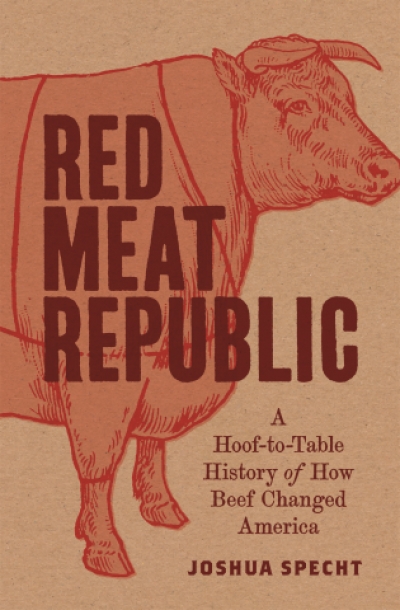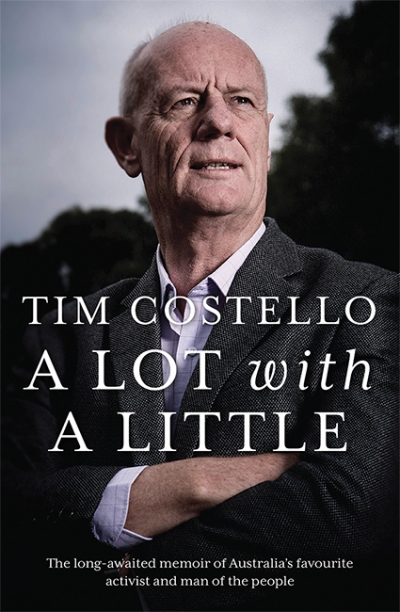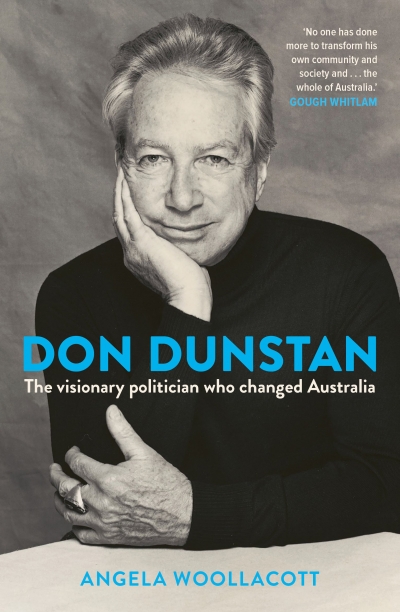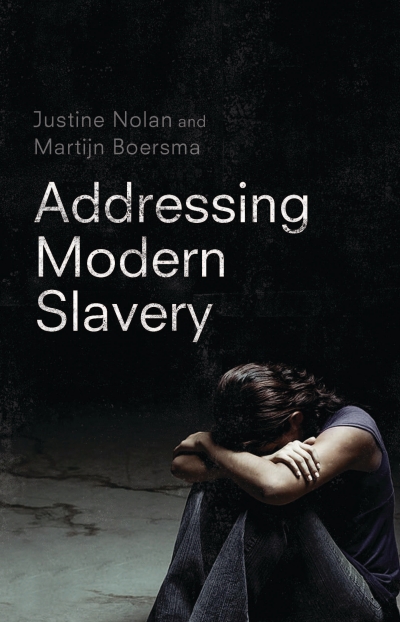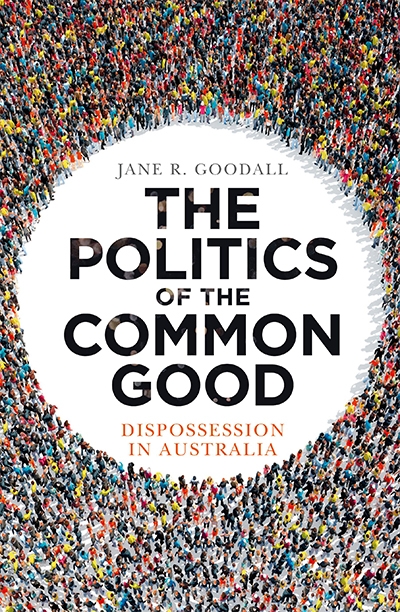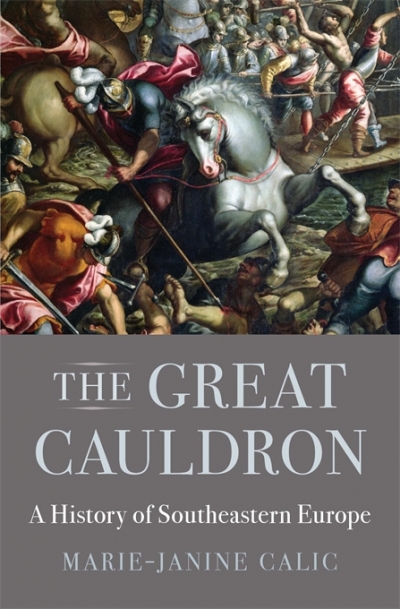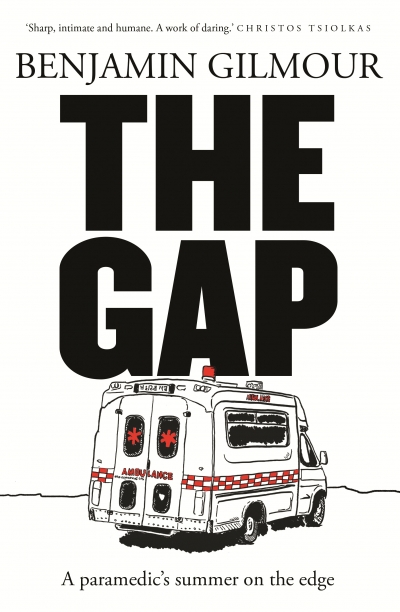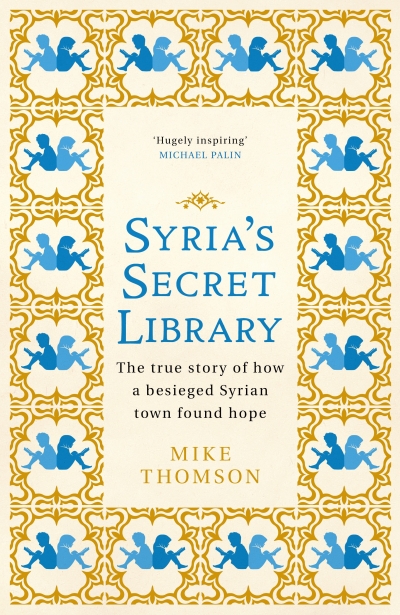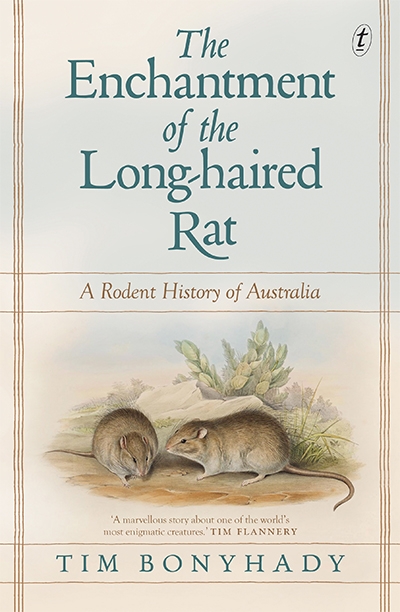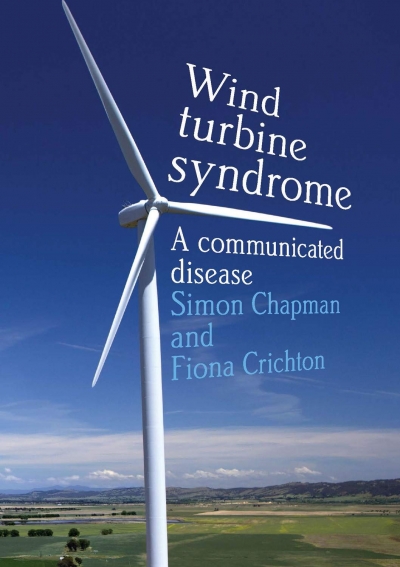Non Fiction
Red Meat Republic: A hoof-to-table history of how beef changed America by Joshua Specht
During a steamy Brisbane summer in the early 1990s, my father planned an outing for his preteen children, an adventure that would punctuate an otherwise predictable cycle of sleepovers, movies, and trips to the swimming pool. At the time, Dad was a board member of the Queensland Abattoir Corporation, and his idea of entertainment was a guided tour of the nearby Cann ...
This autobiography by Tim Costello – Baptist minister, lawyer, anti-casino activist, CEO of World Vision Australia for thirteen years – is a clear and straightforward account of his life, free of obvious literary artifice. What Costello has tried to do, he says, is to understand and explain how his memories and experiences ...
... (read more)Don Dunstan: The visionary politician who changed Australia by Angela Woollacott
Don Dunstan tended to divide those around him, even his parents. His father, Viv, moved from Adelaide to become a company man in Fiji. Peter Kearsley, a contemporary of Don’s who later became chief justice of Fiji, said Viv was ‘a fair dinkum sort of chap’, ‘the sort who would have been an office bearer in a bowling club’. His mother, according to Kearsley ...
Addressing Modern Slavery by Justine Nolan and Martijn Boersma
When the Bill that became the Modern Slavery Act 2018 (Cth) was introduced into the federal parliament, it was accompanied by a grim message: two centuries after the abolition of the slave trade in the United Kingdom, it is estimated that there are twenty-five million victims of modern slavery worldwide. It also came with a bracing if Panglossian promise: t ...
The Politics of the Common Good: Dispossession in Australia by Jane R. Goodall
The commons, the common good, the commonwealth: all words for humans’ shared right to the fruits of the earth to sustain their lives, and all words with deep political histories. In The Politics of the Common Good, Jane R. Goodall excavates some of these deep histories, beginning with the Diggers and Levellers of mid-seventeenth-century England who, in pr ...
The Great Cauldron: A history of southeastern Europe by Marie-Janine Calic, translated by Elizabeth Janik
South-eastern Europe is a region defined by ambiguity: with few clear geographic boundaries or consensus over its correct appellation, it is a palimpsest bearing the marks of Balkan, Roman, Byzantine, Venetian, Ottoman, and central European cultures. As the identities of the region’s inhabitants have shifted across the centuries, their position within the European ...
The Gap: An Australian paramedic’s summer on the edge by Benjamin Gilmour
Sirens wail. Families cry together. Defibrillators shock bodies into convulsion. These are the sounds and images that veteran paramedic, writer, and filmmaker Benjamin Gilmour animates in his latest book, The Gap
A rebel stronghold on the southern edge of Damascus, the Syrian suburb of Daraya, was violently isolated by the Assad regime for almost four years – a ruthlessly protracted attempt to starve out the city’s pro-democracy insurgency. Power and water supplies were cut, crops were burned, and humanitarian aid was barred. There was no food, no medicine, and no way out.Syria’s Secret Library: Reading and redemption in a town under siege by Mike Thomson
The Enchantment of the Long-haired Rat: A rodent history of Australia by Tim Bonyhady
The enchanting of rats has a long history. The Pied Piper, who enchanted first the rats then the children of Hamelin, is familiar to European readers. Here, Tim Bonyhady brings us a new story of rat enchantment by the Diyari and the Yandruwandha people in the eastern Lake Eyre basin. According to explorer Edwin Welch, they sang ‘in low, weird and dirge-like tones ...
Wind Turbine Syndrome: A communicated disease by Simon Chapman and Fiona Crichton
‘Climate change is coming,’ fourth-generation farmer Charlie Prell told an Independent Planning Commission hearing on a proposed expansion of the windfarm near his Crookwell property on 6 June 2019. He and his family constantly hear the noise of the turbines spinning five hundred metres away, generating electricity. They hear the sounds of traffic from the road, ...

